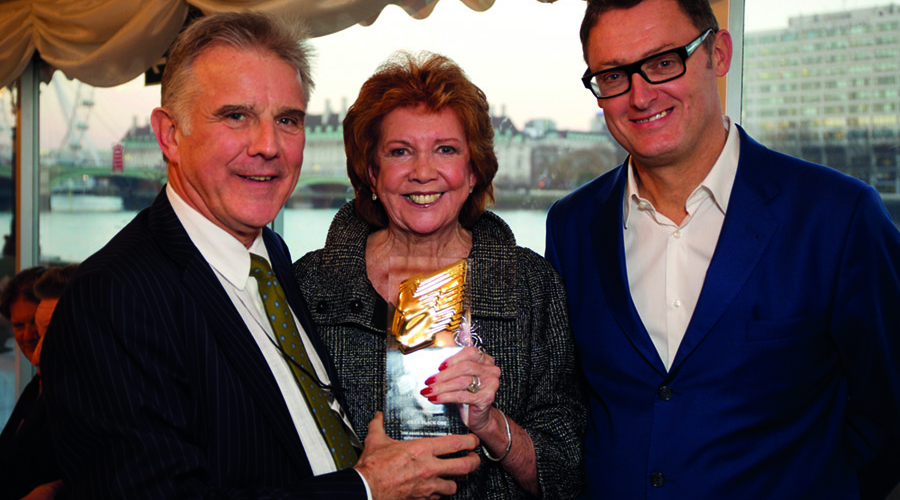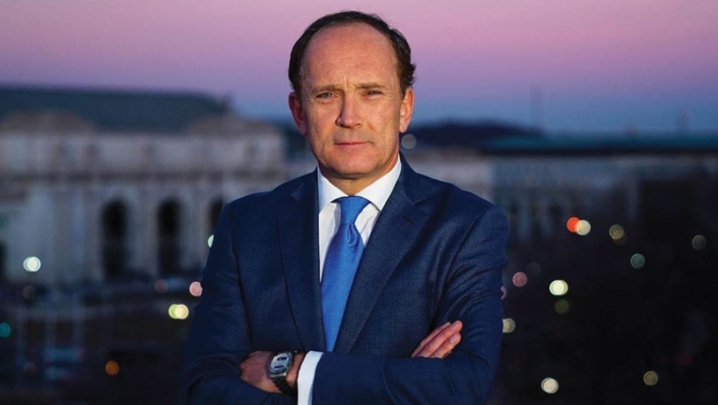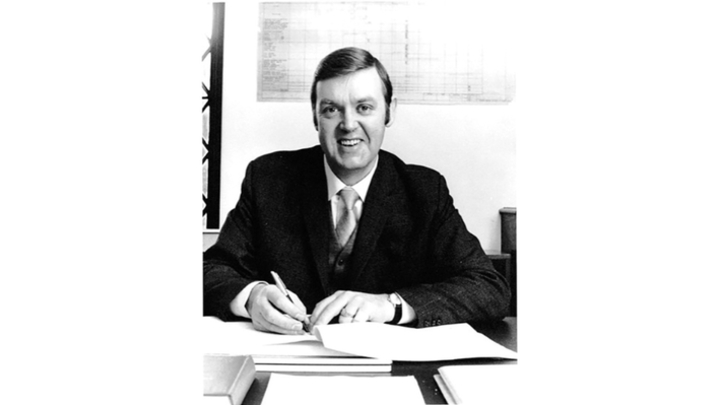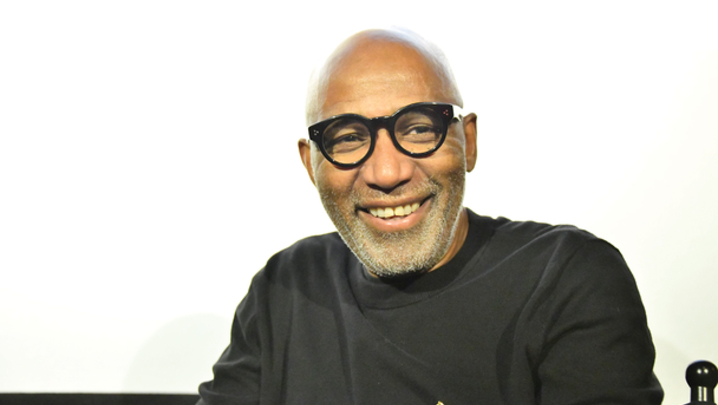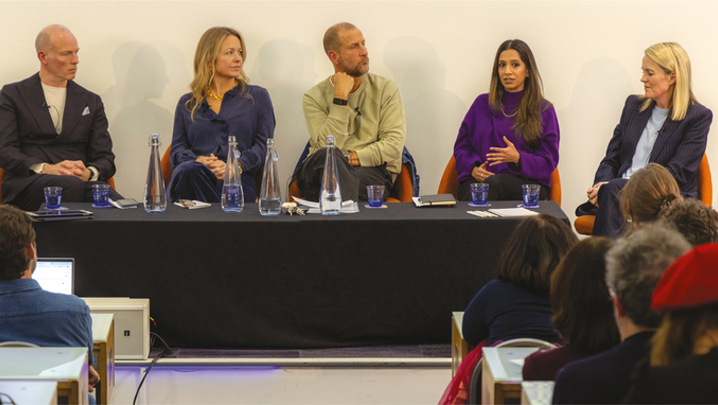Steve Clarke hears how Cilla Black got to be the highest paid female performer on British television
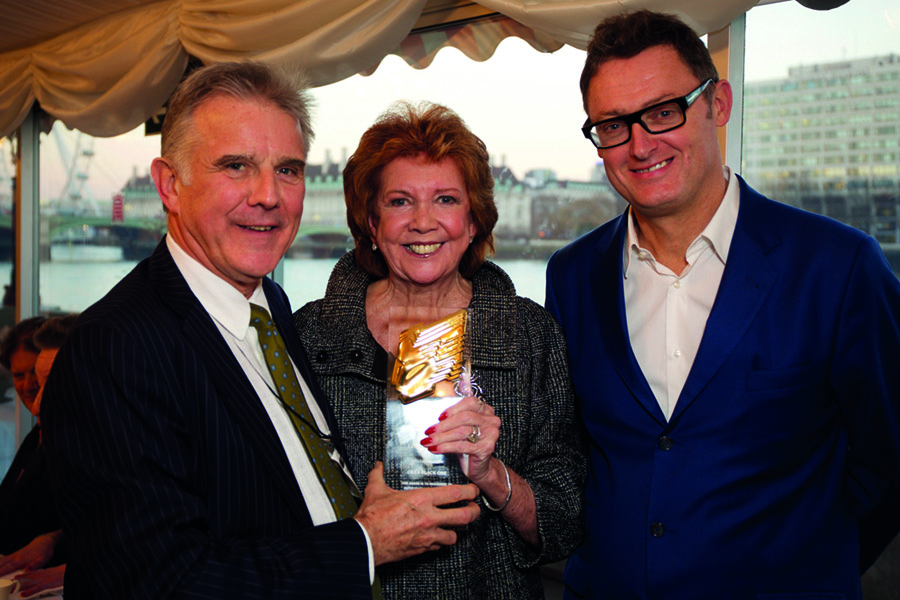 From left: Paul Jackson, Cilla Black and Jeff Pope
From left: Paul Jackson, Cilla Black and Jeff Pope
Fifty years after it happened, it's still hard to believe the extraordinary story of Cilla Black's rise to fame.
How Liverpool docker's daughter Priscilla White became the most famous female British vocalist of the 1960s was the subject of one of 2014's most successful TV dramas, ITV's biopic, Cilla.
Her shared history with The Beatles and Brian Epstein, the tortured impresario, who died tragically in 1967, gives her story a compelling resonance fully embraced by the three-part series.
At an RTS Legends lunch the star talked amusingly and movingly of her early days on the Liverpool club scene. And how, more than three decades later, presenting LWT's Blind Date helped her to cope with bereavement, following the death of her much-loved husband and manger, Bobby Willis.
She was interviewed by Cilla's writer and Executive Producer, Jeff Pope, who was deft in his questioning.
He began at the beginning. Pope reminded Black that her first "gig" was performed, aged three, on the kitchen table at home in Liverpool's Scotland Road, then the city's down-at-heel Catholic neighbourhood.
"They were having jars out, as families would," remembered Black, who was presented with the RTS's inaugural Legends Award at the lunch. "It was Saturday night and somebody discovered me on the staircase and they stood me on the table and I sang The Good Ship Lollipop. "That was my first round of applause.
I thought, 'This is wonderful,' and so it went on from there." Her parents wanted their daughter's life to be better than their own. "I didn't know I was poor until I was 14. Everybody was in the same boat. Everybody had an outdoor loo and ate fish and chips on Friday," she said.
 Did she have a dream to succeed from the start, asked Pope? "It was my parents' dream, actually. You know, you only get out of life what you put into it... My father was a docker and my mother sold second-hand clothes in the market.
Did she have a dream to succeed from the start, asked Pope? "It was my parents' dream, actually. You know, you only get out of life what you put into it... My father was a docker and my mother sold second-hand clothes in the market.
"She said: 'There's got to be something better than this.' When they stood me on that table I thought, 'This is what I wanna do.'"
Her singing ability, abundant self-confidence and empathetic personality made her stand out from the crowd. Black's red hair helped, too. She dyed it herself when she was 13, reputedly with a seven-penny rinse from Woolworths and a toothbrush. The red hair survives.
Cilla belted out numbers on Liverpool's thriving rock scene at clubs such as the Iron Door, the Jacaranda, the Blue Angel and, famously, The Cavern, where The Beatles played lunchtime and evening sessions.
The first time she sang in a recording studio was a revelation. Black could finally hear her own voice via the studio headphones. "It was fabulous. I couldn't hear myself in The Cavern...and it was in the studio where I discovered my quiet voice... "For the first time, I had light and shade. Now, I'm totally deaf because of The Cavern days."
Her producer, head of EMI's Parlophone label, George Martin, said her voice was like that of a corncrake, famous for its loud, rasping song. "I remember the first time I did an audition for George Martin and Brian Epstein [her first manager] took me into a pub," Black told the RTS. "I'd never been into a pub before, because nice girls did not do that in Liverpool. He said: 'Have a brandy.' I said: 'No.' He said: 'It'll calm your nerves.' I said: 'I'm not nervous, just get me in there.'"
Popewanted to know what it was like being a young woman in Liverpool at the dawn of the 1960s and the start of a cultural convulsion that continues to reverberate today.
"We were just kids and we were enjoying ourselves... We were great and it was after the war and the ration books... "A lorra my uncles went away to sea. They brought home records from New York, which we then sang."
Unlike The Beatles, Cilla appeared on stage for free, the Fab Four often encouraging her to perform. "They [The Beatles] were just mates... My friend Pauline went out with George [Harrison]. "We went down to the Iron Door. She said to George: 'Give Cilla a go.' John Lennon said: 'Come on, Cyril, she can knock yer 'ead off,' and I did."
Black remembered the first time she met Bobby Willis, the man who would later shape her TV career when he took over management duties from Epstein. The two were married in 1969, the year after her first BBC One series, Cilla, was launched. "Nobody in Liverpool had a suntan and he did... I thought, 'Oh, I fancy him.' "I thought he was either Norwegian, off the boats, or he had money, but he didn't have any."
Willis was tanned because he had just returned from a £48 Spanish package holiday to Lloret de Mar (wine included), Cilla explained.
In the early Liverpool days, Willis had ambitions to be a songwriter. But, from the beginning of their relationship, she made it clear that she was the one destined for fame. "I was a cow [to Bobby]," said Black: "'It's me, Bobby. You're supposed to look after me. I'm the star' – more or less." She added: "Bobby was a great director. There could be a million people telling me how great I was, but I only ever listened to Bobby. He sometimes told me I could have done it better... At the end of day, I only ever listened to him."
The turning point in her career came when Epstein signed her in 1963. "I fancied him as well," said Black, to audience laughter. "I didn't know what gay was. I do now."
Her first audition for Epstein was a disaster: "I sang for The Beatles at the Majestic Ballroom in Birkenhead and I was very nervous... I flunked it."
The next time that Epstein heard Black sing, she had no idea he was in the audience. Her performance was relaxed. "He said to me: 'Why didn't you sing like that at the audition?' I said: 'I didn't know you were there and wasn't nervous, I was myself.'"
Her first single, Love of the Loved, written by Lennon-McCartney, made it to No 35 – but the follow-up, Anyone Who Had a Heart, originally recorded by Dionne Warwick, went to No 1.
Black remembered how Martin was determined that Shirley Bassey record Anyone Who Had a Heart. But Epstein insisted that "My Cilla" record the song. "I was a rock 'n' roll singer," she said. "I didn't know I could do ballads."
Pope wanted to know the secret of her intense, emotional performance on Anyone Who Had a Heart. Black explained that, in the early 1960s, singers would be expected to record three songs in a three-hour session, so they had to put everything into a performance.
"EMI was very much like the BBC. Time was of the essence. You had to do it and I sang out of key.
"I wanted to do it again, but George Martin said, 'It's soul.' I said: 'Believe me, it's not soul, I sing sharp on the fade out.'"
It was Epstein, knowing the fickleness of pop stardom, who steered Black towards a career in TV and the prospect of long-term success.
Towards the end of his life, Epstein's behaviour (he died from an overdose, aged 32) was becoming more of a worry to those close to him – including Black.
She said: "He didn't like being gay... At the time, being gay was illegal. It was dreadful. He had four different doctors and was telling each of them different stories to get pills.
"He would ring me up every Saturday and say, 'You won't see me tomorrow...'"
Black, backed by Willis, was reluctant to embrace a TV career. "Television found me, I didn't find TV," she pointed out.
"In fact, at my first meeting with the late, great Michael Hurll [producer of the BBC One show Cilla] – he was doing The Billy Cotton Band Show – I was 10 minutes late and he tore a strip off me."
Black and Hurll soon hit it off. When, years later, the producer needed work (his career had suffered after the death of a contestant on The Late, Late Breakfast, which he had produced and directed) Black got him a job as Executive Producer on Blind Date.
"He was my crutch really..." Cilla ran for eight series on BBC One. Hurll was fond of filming on location and arranging stunts.
In one live broadcast, the star was hoisted outside a block of flats on a crane. The producer told her to stop at any floor and encourage people to come out and chat to her.
"I duly did this and a girl came out. I said, 'You can't be on your own on a Saturday night, you must be with someone.'
"After a lorra, lorra persuasion, she brought this guy out. But little did I know that her husband was in the pub watching the show and I'm forcing this girl out on the terrace."
The series, which was watched by up to 22 million people, ended in 1976. At the time, Black had a young family and was unsure where her TV career would go next.
An appearance on BBC One's Wogan, promoting a new album, The Best of Cilla Black, reminded the TV community of her unique, down-to-earth appeal, which bridged demographic and class divides.
Overnight, producers were knocking on her door. LWT won the battle to put Black under contract.
Her first series for the ITV company was Surprise Surprise. "I'd never seen so many producers on a show," recollected Black.
But it was her next LWT show, based on the Australian format Perfect Match, that propelled the star to new heights.
Blind Date ran for 18 years, an essential part of Saturday-night TV for millions of viewers.
LWT had bought the show but there were problems getting it approved by the IBA. The regulator was worried it would be too raunchy for ITV audiences in the 1980s.
Black was now reputed to be TV's biggest earning star (Willis was noted for his business acumen) – and ITV's most popular entertainer.
"If I knew I was the highest paid person on television, it would have frightened the life out of me. I was doing what I did best – going on stage and wearing the frock," she told the RTS.
When Willis died in 1999, Black continued to do Blind Date. "It was my lifeline," she said. "As Bobby says about football, it's that 90 minutes where you forget about anything.
"When I did Blind Date, I forgot about the whole world and everything going on in my life."
Unusually for a TV star, Black's decision to stand down from Blind Date was completely her own – announced by her, live on air, much to the displeasure of her ITV bosses.
"I thought the public should know before anybody else. I didn't want the public to read about it in the papers.
"I thought it was best to use live television to hand in my notice. I didn't know what a furore it would cause.
"My life had changed. There was no Bobby sitting there in the dressing room. I'd had enough."
Asked at the RTS lunch to choose between her singing and TV careers, Cilla Black was in no doubt – it was flexing those extraordinary vocal chords that had given her the most pleasure.
The RTS Legends lunch with Cilla Black OBE was held at the House of Lords on 5 December. It was hosted by Baroness Benjamin and produced by Paul Jackson.

